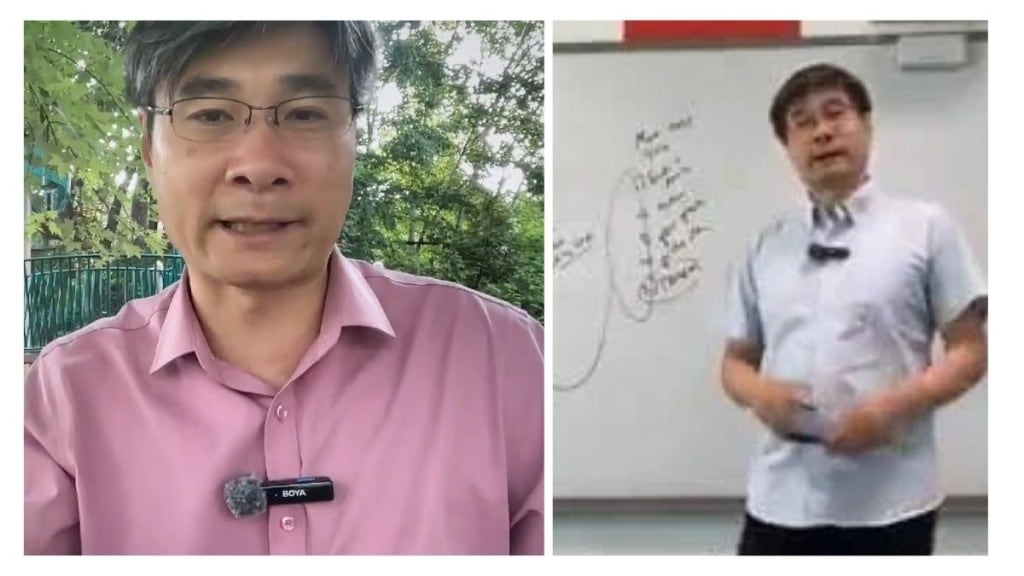A video by Chinese educator and historian Jiang Xueqin is going viral across social media platforms after many of the geopolitical scenarios he outlined over a year ago are now seemingly playing out in real time. Recorded on May 29, 2024, and now gaining renewed attention under his YouTube channel Predictive History, Jiang warned that a second Trump presidency could result in an American military invasion of Iran – a move he described as “a catastrophic mistake.”
In the video, Jiang likened the hypothetical U.S. invasion to Athens’ ill-fated Sicilian Expedition during the Peloponnesian War, as detailed by Thucydides. He warned that while a U.S. attack might initially seem successful, it would soon collapse under the weight of mountainous terrain, severed supply lines, and local resistance – just as the Athenians had been devastated by their inability to resupply in hostile territory.
“America would suffer a similar fate,” Jiang explained in the video. “To win a war, you need to avoid encirclement, mass your forces, and protect your supply lines. Iran’s geography and unified population would make all three impossible.”
Jiang predicted that the U.S. and Israel would justify such an invasion under the pretense of targeting Iranian nuclear capabilities. He warned that contrary to Western hopes, the Persian population would rally around its government rather than rise in revolt. He also alleged that the U.S. might resort to a false-flag operation, such as a domestic terror attack blamed on Iran, to manipulate public opinion and justify large-scale military mobilisation.
He went so far as to claim the U.S. might deploy 100,000 troops into Iran, but added that such a force would be insufficient without the support of allies, support he believes is unlikely to materialise. “You would need at least three million troops to occupy and control a country like Iran,” Jiang said, calling the idea “militarily and politically
unrealistic.”
The lecture also explains on broader themes of leadership and media-driven politics. Jiang described Ukrainian President Volodymyr Zelensky as someone more concerned with optics than military strategy, citing his background as a television actor. He extended the analogy to Donald Trump, also a former reality TV figure, saying Trump would be likely to initiate military action against Iran if he believed it would boost his image.
“Trump would attack the moment it makes him look strong on TV,” Jiang said. “He’s not thinking strategy, he’s thinking spectacle.”
Jiang also predicted that Russian President Vladimir Putin would become fully entangled in the conflict, possibly capitalising on U.S. distraction to pursue his own strategic aims. “This war isn’t over,” he warned, referring to the Ukraine-Russia conflict. “It will flare up again and the next phase will be even more dangerous.”
A key theme of Jiang’s lecture is the idea that both historical patterns and game theory can be used to accurately predict future events. His channel Predictive History attempts to do just that, offering what he calls “play-by-play previews of history before it happens.”
Who is Jiang Xueqin?
Jiang Xueqin is a Beijing-based educator, writer, and advocate for education reform. He specialises in helping Chinese schools integrate creativity and critical thinking into their curricula, and contributes regularly to both Chinese and international media on education and innovation. An influential voice in global education, Jiang has spoken at major international forums including the Global Education & Skills Forum (GESF) in Dubai, the World Innovation Summit for Education (WISE) in Doha, the Learners’ Innovation Forum for Education (LIFE) in Beijing, and Educacao 360 in Rio de Janeiro. He is also actively involved in recognizing excellence in education, serving on the selection committee of the Global Teacher Prize and the Pre-Jury for the WISE Awards. He is a Fellow of the Royal Society of Arts (RSA).
Jiang’s professional background spans journalism, documentary filmmaking, and international development, including a role with the United Nations. Between 2008 and 2012, he led the development of innovative study abroad programs at two of China’s top public schools, Shenzhen Middle School and Peking University High School, focusing on nurturing global citizenship and independent thought among Chinese students. In 2014, he published Creative China, a book that chronicles his efforts and vision for transforming education in China. Jiang holds a degree in English literature from Yale College, where he graduated with distinction in 1999.

